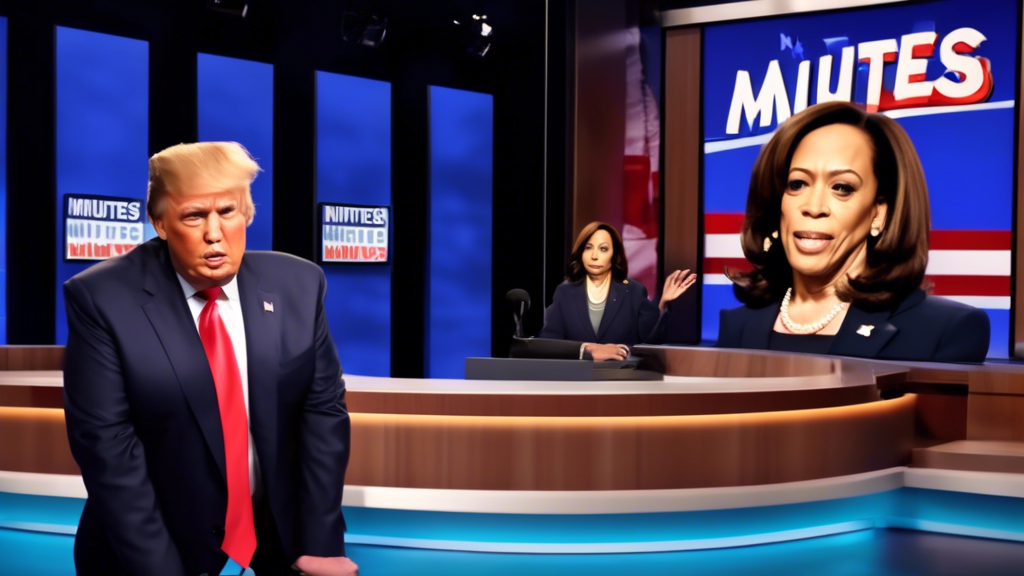
Trump Criticizes ’60 Minutes’ for Misleading Edit of Kamala Harris Interview
Former President Donald Trump has taken to social media to criticize the CBS news program ’60 Minutes’ for what he claims is an Orwellian editing of an interview with Vice President Kamala Harris. Trump’s remarks were a response to the airing of the interview, which he argued was manipulated to present Harris in a more coherent light than her original responses would suggest.
Criticism of ’60 Minutes’
In a series of posts, Trump accused the network of engaging in deceptive editing practices that he believes distort reality. He suggests that the edits made during the broadcast were intentionally designed to obscure Harris’s perceived confusion and incoherence during the interview.
Allegations of Editing
Trump’s allegations center on the notion that the final cut of the interview was crafted to conceal Harris’s verbal missteps, which he characterized as “word salad.” According to Trump, such editing practices undermine the integrity of journalism and promote a misleading narrative about the competence of Democratic politicians.
Comparison to Orwellian Tactics
By labeling the editing as Orwellian, Trump implies that ’60 Minutes’ is partaking in manipulative tactics similar to those described in George Orwell’s dystopian works. He suggests that this manipulation serves to maintain a favorable image of Harris in the public eye while obscuring the more negative aspects of her presentation.
Political Context
This criticism from Trump fits into a larger framework of skepticism that he and his supporters harbor toward mainstream media outlets. For years, Trump has vehemently challenged the objectivity of major news organizations, particularly when they cover Democratic figures and policies. His comments highlight an ongoing narrative concerning media bias and the perceived lack of fairness in political reporting.
Public Reaction
The response to Trump’s accusations has been mixed. Supporters laud his comments as a necessary critique of media practices, while critics defend ’60 Minutes’ editorial choices as consistent with journalistic standards. CBS and other media outlets have generally stood by their reporting methods, arguing that their edits are intended to enhance clarity without altering the substance of the interview.
The incident underscores the broader conflict between political figures’ narratives and media representations, as well as the implications for public perception and trust in journalism.
